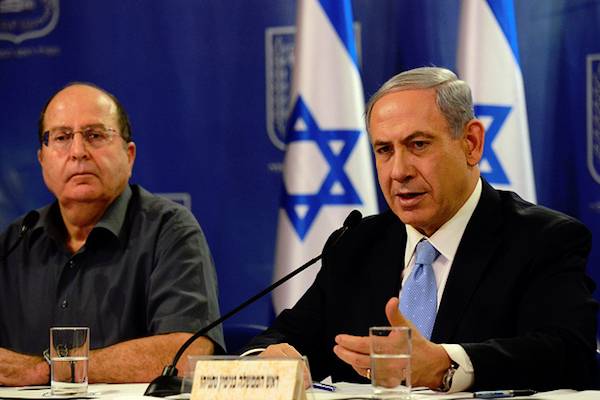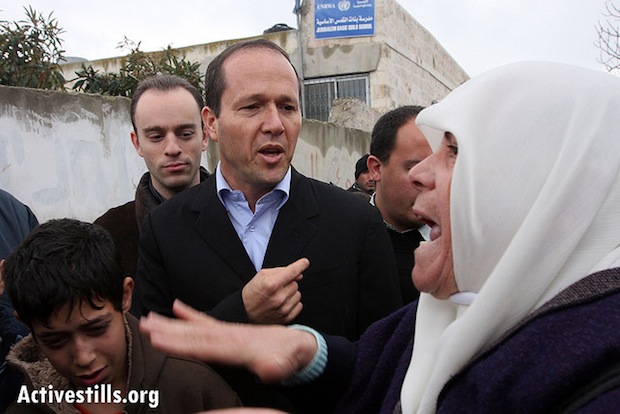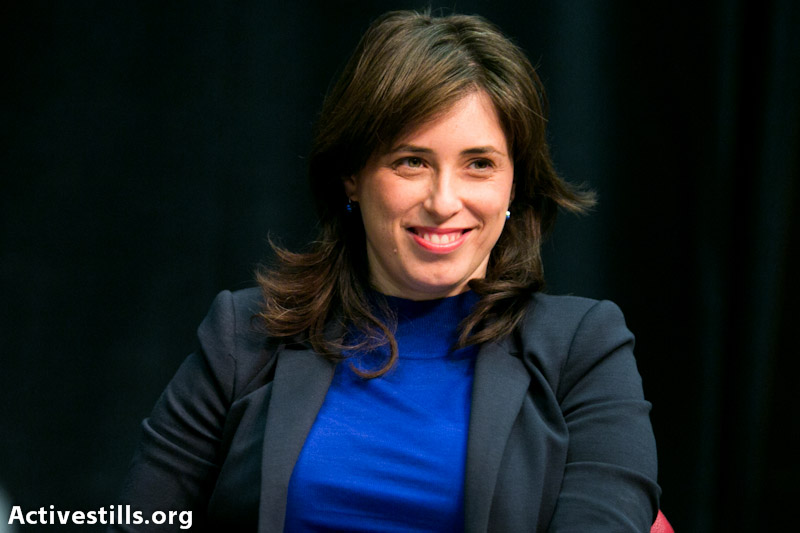Short of allowing Palestinians to establish an independent state, there is nothing Netanyahu won’t do to ensure his political survival.
Liberal Israeli columnist and Channel 10’s top political commentator Raviv Drucker published a piece in Haaretz Sunday, in which he waxes optimistic about the “day after Netanyahu” and who could possibly take over and bring the Israeli Right back to its proper, “sane” place.
Drucker, of course, knows that barring some unforeseen circumstances, the “day after Netanyahu” is far, far away. Far enough for him to propose Defense Minister Moshe Ya’alon as Netanyahu’s possible successor. While Drucker hasn’t forgiven Ya’alon for his “remarks against the U.S. administration,” and does not see much to be proud of in the outcome of last summer’s war on Gaza, he still views the defense minister as someone who “does not hesitate in the face of court decisions ordering the evacuation of unauthorized settlement outposts.”
“He unhesitatingly came out against the far right,” Drucker continues, “stood by President Reuven Rivlin and gave the Shin Bet full support in investigating the Duma arson murders. Compared to Netanyahu, who on these issues speaks belatedly and haltingly, if at all, Ya’alon is like a breath of fresh air.”
Maybe so. But in the meantime, King Bibi isn’t going anywhere. Even within his own party, Netanyahu’s rule remains unchallenged, as we can see by the upcoming Likud primaries. As opposed to previous inner-party votes, in which members vote for the person they wish to lead the party, this time around Netanyahu will be running against himself. As Yossi Verter explains in Haaretz, a primary election that grants Likud voters the ability to either vote for a single candidate or abstain is unprecedented, not to say undemocratic.
The two Likud members deemed most threatening to Netanyahu’s rule — former Education Minister Gideon Sa’ar and current Jerusalem Mayor Nir Barkat — have also been neutralized. Like in every party, Likud’s primaries were slated to be held close to the next election. When it became clear that Barkat, who announced that he would join Likud and run in the next election — and that he had already begun to amass thousands of supporters — could pose a danger to Netanyahu’s rule, the prime minister convinced the Likud Central Committee to vote in favor of moving the primaries to next month.
The key to Netanyahu’s political survival
The power vacuum in Israeli politics has been generally attributed to the collapse of the Israeli left in recent years. The lack of a political alternative to right-wing rule certainly plays a role, but as The Times of Israel’s senior political correspondent Haviv Rettig Gur recently wrote, the Netanyahu premiership is “fast becoming the most centralized and powerful Israeli administration in generations, possibly since the indispensable ‘Old Man,’ Israel’s first prime minister David Ben Gurion.”
Netanyahu currently serves as Israel’s foreign minister, economy minister, communications minister and minister for regional cooperation. By controlling all these ministries, he has the power to regulate Israel’s media, ensure the passing of controversial natural gas deals, and control the goings on in the Foreign Ministry. The latter is a much-vaunted post often held by political rivals of any sitting prime minister.
Political appointments are one of the ways in which Netanyahu has neutralized his political challengers, both from within and outside his party. Take far-right Likud stalwart and Netanyahu critic, Danny Danon, who was appointed by the prime minister to be Israel’s ambassador to the United Nations. Thus the prime minister rid himself of one of his key critics in the Knesset by presenting him with what seems like a promotion.
Or take Gilad Erdan, who came in second in Likud’s pre-election primaries. Netanyahu fired Erdan from his post as communications minister last May, prompting critics to blast Netanyahu for what seemed to be a flagrant attempt to tighten government oversight on media and telecommunications.
Deputy Foreign Minister Tzipi Hotovely was also reportedly handpicked by the prime minister to join his party, after he watched her spar with left-wing commentator Gideon Levy on a now-defunct political program on Channel 10. Today she finds herself in a position with power in name only, but with no actual power or independence.
In tandem with divesting himself of rivals and critics, Netanyahu has filled the positions he considers most important with people who have demonstrated unswerving loyalty. As Retig Gur points out, Netanyahu’s recent elevation of confidant Yossi Cohen to head of the Mossad has made Cohen de facto Israel’s top diplomat, tasked with the “most strategically critical aspects of Israel’s foreign policy,” and carrying it out this task at the prime minister’s discretion.
This kind of gatekeeping politics has also driven Netanyahu to appoint people such as Avichai Mendelblit to the position of attorney general. According to Haaretz‘s Gidi Weitz, Mendelblit has occupied a position of trust in Netanyahu’s cabinet for several years, and the prime minister trusts him to make any potential scandals disappear into thin air.
It is this very consolidation of power that makes it nearly impossible for us to imagine an Israel without Benjamin Netanyahu. Ben Gurion ensured he would be able to implement statist policies vis-a-vis nearly every aspect of the country — from its economy to defense to immigration — by the very nature of his role as a state-crafting prime minister. But Netanyahu has had to rise in the party ranks, winning (and sometimes losing) a number Likud primaries and national elections. His three-term winning streak is seen, therefore, as a mandate by the people to further entrench his rule. Short of allowing Palestinians to establish an independent state, there is nothing Netanyahu won’t do when it comes to political survival.






